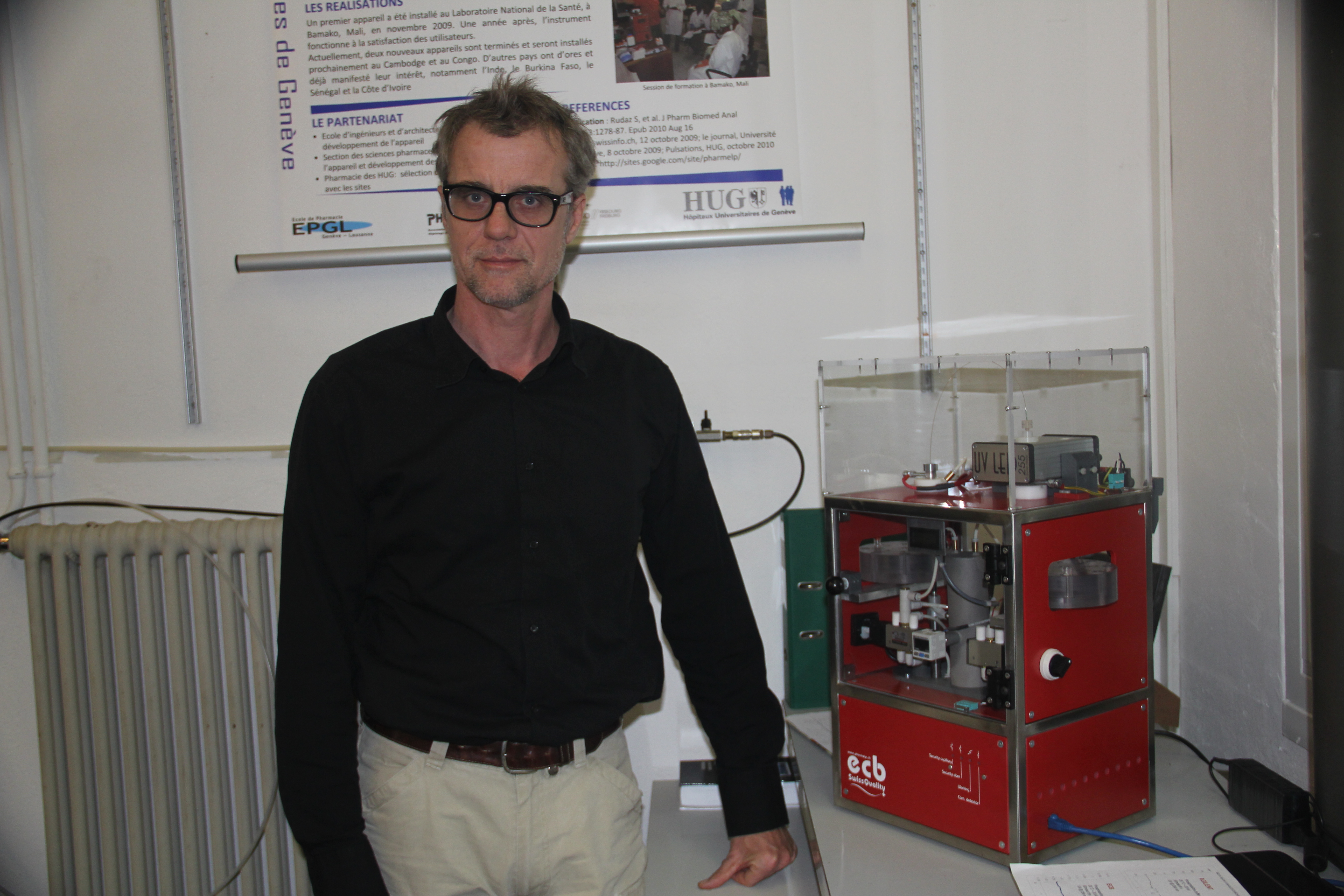
Drugmakers join Interpol’s fight against fakes

The world's largest pharmaceutical companies, including Swiss-based Roche and Novartis, will pay about €4.5 million (CHF5.6 million) over three years to support Interpol’s fight against counterfeit prescription drugs.
The Lyon, France-based Pharmaceutical Crime Programme aims to help police as well as health and customs authorities stem the supply of fake, contaminated or otherwise illegal medicines. Through the initiative, Interpol also plans to better identify and dismantle organized crime networks that distribute the bogus drugs across the world.
The World Health Organization estimates that medicines that are “deliberately and fraudulently mislabelled with respect to identity or source” generate $430 billion in sales every year.
On the other hand, legitimate drugmakers lose billions in sales due to organised crime rings, which make and sell fake drugs but also divert therapies to countries where they are not approved. As much as 10 per cent of the medications sold worldwide are fakes, Interpol estimates.
Patients who take counterfeit prescription drugs may get sicker or even be poisoned because they take medicines that were not prescribed to them. Experts estimate hundreds of thousands of people around the world die because of counterfeit medicines each year.

More
Swiss technology battles fake drugs
People at risk
“With no country, no drug, no medical product immune from counterfeiting, a global effort is needed to combat this threat which puts the lives of millions of people at risk every single day,” said Interpol’s Secretary General Ronald Noble in a statement.
Fake cough syrup and other medicines laced with a widely used solvent have caused mass poisonings around the world, and in 2012, some 109 heart patients in Pakistan died after taking fake medicine, Interpol said. In developing countries, up to half the drug supply may be fake, according to Christopher Viehbacher, chief executive of French drugmaker Sanofi.
That figure is many times lower in developed countries, where the most potentially dangerous fake drugs are sold through rogue online pharmacies. More than half of the medicines purchased from such websites have been found to be counterfeit, the WHO said.
Not just in developing countries
Counterfeit drugs are increasingly finding their way into the supply of pharmacies and hospitals. In the United States, counterfeit versions of the Roche’s cancer drug Avastin last year infiltrated the wholesale supply to cancer clinics and hospitals. An unknown number of those fakes were administered to patients.
Roche states on its website that it is aware of the fact that counterfeiters have at some point tried to forge the company’s entire portfolio of drugs. The Basel-based drug maker said it is actively working to prevent the counterfeiting of its products by collaborating with anti-counterfeiting organizations, cooperating with local authorities and taking measures within the company.
Twenty-nine of the world’s largest pharmaceutical companies agreed to provide financial support and share the intelligence they uncover in their own investigations with Interpol.
Interpol will run pilot projects to find ways to more effectively coordinate its work. For example, the agency plans to train local law enforcement officials on investigative procedures, teach them how to better work with partners outside their countries and raise awareness of the issue.

In compliance with the JTI standards
More: SWI swissinfo.ch certified by the Journalism Trust Initiative






























You can find an overview of ongoing debates with our journalists here . Please join us!
If you want to start a conversation about a topic raised in this article or want to report factual errors, email us at english@swissinfo.ch.